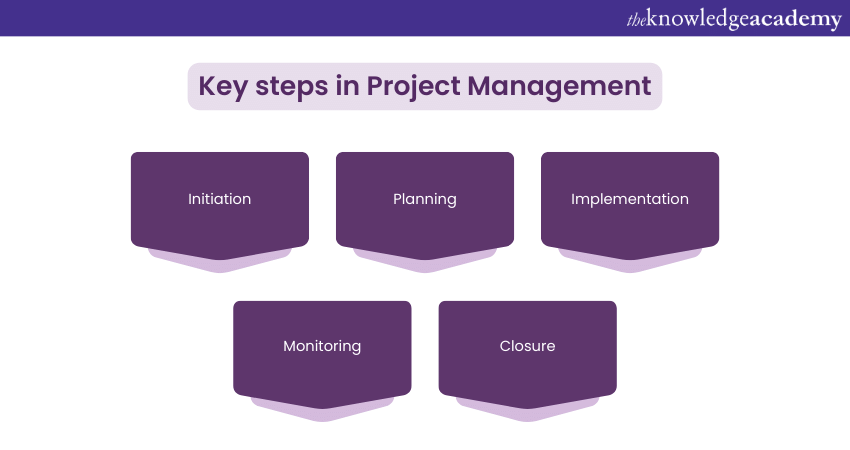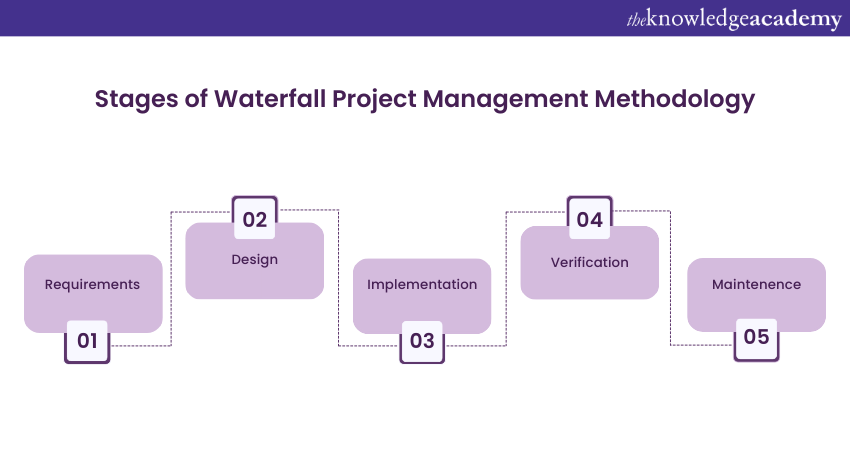We may not have the course you’re looking for. If you enquire or give us a call on 01344203999 and speak to our training experts, we may still be able to help with your training requirements.
Training Outcomes Within Your Budget!
We ensure quality, budget-alignment, and timely delivery by our expert instructors.

If you have the skills to lead a team and provide solutions to achieve business goals on time, you should consider a career in Project Management. Project Management is the system of planning, organising, and managing resources to accomplish specific project objectives within a given set of constraints. It involves managing discrete packages of work to achieve specific objectives. The work is managed depending on various factors, including the size of the team, the roles needed, and the communication and collaboration methods.
As per Indeed, the average salary for a Project Manager is £47,317 per year in United Kingdom. If you want to become a Project Manager, building skills like understanding the business, time management, team handling, and project handling are important. This blog will take you through everything you need to know about What is Project Management. Read more!
Table of Contents
1) What is Project Management?
2) What is a project?
3) Different stages of Project Management
4) Project Management approaches
5) Project Management methodologies
6) Example of Project Management
7) Conclusion
What is Project Management?
The Project Management represents the practical and theoretical application of processes, methods, skills, knowledge, and experience for the achievement of stated project objectives according to agreed acceptance criteria. Once the project timeline and budget are locked, the Project Management department focuses on the final deliverables.
A very crucial aspect that sets Project Management aside from the regular 'management' is the presence of a definite timeline and deliverable at the tail end, unlike management which is a process that goes on and on. Consequently, the role of a project professional not only requires specialised knowledge but also good people skills, together with business acumen.
What is a project?
A project is a collection of well-defined tasks, activities and outputs which are properly organised and completed to reach a definite ending. They represent short-term measures to generate value from goods or services that are somehow innovative.
In order for a project to be completed each aspect of the project must go through the Project Lifecycle phases. This cycle implies that a manager can manage each phase during all project cycles. It enables them to do a very thorough job by planning expenditure of each task and every activity, thus, giving a very high probability of the project’s successful implementation.
Learn the basics of Project Management with our Introduction to Project Management Course!
Different stages of Project Management
In Project Management, phases are designed to improve the project quality by reducing the risks. Breaking down the process into different tasks based on the project's time and complexity leads to delivery of project on time with higher quality. There are mainly 5 phases in a Project Management that are discussed below:

1) Initiation: Initiation phase is the starting phase in Project Management Lifecycle. This phase starts with understanding the business case and creating a project charter document. Project Charter is also called Project Initiation Document (PID). PID is a formal document made to save the physical and digital record of the project plan and goals. Also, you need to understand the project goal and analyse every part of the project.
2) Planning: Planning is the second phase of Project Management. In the planning phase, you need to build a roadmap with the help of team members and plan the start-to-end activities of a project. The primary activity is to find the technical requirements, communication plan, deliverable plan, schedule, and provide a detailed report of the project.
3) Implementation: In the implementation stage, start building a project by guiding team members. Provide a proper resource to the team and create a target to complete the project on time. The other responsibilities of Project Manager are to collaborate with clients and the team to identify the issues.
4) Monitoring: In the monitoring phase, you need to keep checking day-to-day activity and need to use tools to create analytics reports. As a Project Manager, you should ensure that no one should divert from the previous plan by establishing Critical Success Factors (KICs) and Key Performance Indicators (KPIs).
a) CSF: Critical Success Factors (CSF) is an element which is important for a project to achieve its goals.
b) KPI: Key Performance Indicator (KPI) uses detailed details to analyse the success ratio of a project.
5) Closure: Closure is the final phase of the Project Management Lifecycle. This final phase shows the final delivery of the project. When the project is completed, test a project and its outcomes, before delivering it to the client. At the end of the project, a Project Manager is responsible for creating a report.
Project Management approaches
Project Management methods provide a set of steps, ways, and tools to handle and complete project activities. They make things more organised, reduce complexities, save money, and minimise risks. Many effective Project Management methods exist. The following are some common approaches to Project Management:
Traditional Project Management
One way is The Project Management Body of Knowledge (PMBOK) approach which concentrates on qualities common to Project Management like budgeting and managing inputs and outputs.
PMBOK makes it possible to establish common vocabulary and rules that define the process of managing projects. The PMBOK guide has some special differences which make it unique to Project Management, while its general management's approach involving the planning, organising, staffing, executing, and controlling is similar.
Agile Project Management
The following approach is Agile Project Management. This method is generally suited for high-velocity projects in complicated environments, because flexibility can respond immediately as the project requirements are changing all the time. Agile Project Management is a dynamic framework based on ongoing planning and monitoring of project procedures. An Agile project consists of small pieces - iterations, that are used to increase speed of development.
In Agile Software Development, an iteration takes the form of a single development cycle, in which a project teamtypically made up of project stakeholder representatives reviews the work at the end of each iteration and provides feedback. The know-how that we get from the analysis during the previous version of the job will give direction to the action that it will take on track.
Lean Project Management
This refers to the philosophy of embracing scanty resources hence saving them both from time and resource waste. The basic idea is getting as much value for the customers using the minimal resources possible. The motive of this operation is similar to it is with lean production principle in the enterprise. As for resource utilisation, the only resources the project will use are essential for its success.
Hybrid Project Management
The hybrid approach consists of the Agile elements and parts of classical Project Management integration. Here, work is divided into tasks with iterations completed by teams that are Agile-ready and enjoy more autonomy than those working under a traditional Project Manager involving the command-and-control approach.
High-level planning can be done over a within which the expected milestones will be outlined to accommodate managers and stakeholders who have milestones preference. This way, things are done following the Agile methodologies, but progress is reported using Gantt Charts and other traditional project monitoring methods which the stakeholders understand well.
Project Management methodologies
Project Management methodologies are made to standardise, structure, and organise the work methods. Project Management methodologies are based on the size and complexity of a project. There are various methodologies to handle a project, but choosing the right one is hard. Planning with two to three methodologies may help you give better results for your project. Let’s have a look at the methodologies in Project Management:
Waterfall Project Management
In 1970, Winston W. Royce invented the Waterfall methodology. He faced continuous problems in his Software Development project. To overcome the issues, he invented the Waterfall Method and succeeded in it. It is a widely used method by many businesses. Here's how the Waterfall Project Management methodology works:

1) Requirements: In the requirements stage, a Project Manager has to understand the requirements of the clients. Usually, a formal document is created to describe each stage and process of the project including plans, resources, cost, risks, analytics plans, tools, time management plans, etc.
2) Design: In the designing stage, Software Developers provide a technical solution to the issues identified in the product requirements, including scenarios, layouts and data models. Developers create a logical design to explain the scope and purpose of the project and transform it to a physical design using technologies.
3) Implementation: Implementation stage is the smallest part of the Waterfall method. At this stage, programmers build the software based on the requirements and plan. During this stage, developers should be ready to face some changes of plans and tasks.
4) Testing: In testing stage, the testing team tests the software to check for errors and ensure that the project reaches its goal of the project. If the errors occur, they notify the developers to remove the errors and change the software.
5) Deployment and maintenance: In deployment stage, the developed software will be released on the market and the user feedback will be analysed. Based on the feedback, the developer's team will change the software defects.
Learn more about the Waterfall Project Management methodology! Check out our Waterfall Project Management Course!
Critical Path Project Management
Critical Path Method (CPM) allows you to identify tasks required to complete a project. If a project takes a long time to complete, this technique will help reduce its completion time. This method provides outstanding clarity of project tasks. This method was first used in New York city, for a Skyscraper development project.
CPM method will help you to break down your project into various sub-tasks and visualise it in a flowchart. This helps evaluate your project time based on the duration of each task assigned. Based on the plans, this method segregates the tasks into multiple subtasks and reduces the workload for the employees. This method applies to many projects from different domains such as construction, software development, and other product development.
Train in business process improvement with our Project Management Certification - join today!
Example of Project Management
Suppose there is a manager in charge of leading a team with the core purpose of building new software apps. They start specifying the size of the project. Then these Project Managers classify the project team job and make a list of developers, engineers, technical writers, and quality assurance specialists. The Project Manager prepares a schedule and assigns deadlines to tasks.
Frequently, Project Managers use diagrams to show the work's progress, using tools like Gantt or PERT charts to determine which tasks will be achieved by which office. They define a budget that is more than enough to ensure the budget remains within the budgetary limits even in case of an unforeseen eventuality.
The manager of the team is also responsible for making sure the team has the energy or resources it needs to build, test, and deploy a software product. An important role of a Project Manager who is involved in the purchasing process of large IT companies, is to combine and unify the project team members belonging from different professional background and explain them the overall purpose of reaching the target. Managers leading projects may be technically competent; however, they are entrusted with the role of breaking top-line visions into real, budgeted and time-bound results.
Conclusion
Hope we have answered the question What is Project Management thoroughly through this blog. It involves overseeing a team, managing time, and sometimes using software to help with the process. Start learning to understand the concepts and methods of Project Management. The more projects you handle, the better you’ll get.
Explore our courses on Project Management Courses | Training & Certification - sign up today to take your career forward.
Frequently Asked Questions

For a successful Project Management career, you need strong communication, leadership, and organisational skills. Problem-solving, time management, and adaptability are crucial.

Technology revolutionises Project Management with real-time communication, task tracking, and analytics. Automation reduces a lot of important Project Management approaches.

The Knowledge Academy takes global learning to new heights, offering over 30,000 online courses across 490+ locations in 220 countries. This expansive reach ensures accessibility and convenience for learners worldwide.
Alongside our diverse Online Course Catalogue, encompassing 17 major categories, we go the extra mile by providing a plethora of free educational Online Resources like News updates, Blogs, videos, webinars, and interview questions. Tailoring learning experiences further, professionals can maximise value with customisable Course Bundles of TKA.

The Knowledge Academy’s Knowledge Pass, a prepaid voucher, adds another layer of flexibility, allowing course bookings over a 12-month period. Join us on a journey where education knows no bounds.

The Knowledge Academy offers various Project Management Courses, including Introduction to Project Management Course, Project Management Office (PMO) Fundamentals Course and Certified Digital Services Project Manager Course. These courses cater to different skill levels, providing comprehensive insights into Top 9 Project Management Trends: An Overview
Our Project Management Blogs covers a range of topics offering valuable resources, best practices, and industry insights. Whether you are a beginner or looking to advance your Business Improvement skills, The Knowledge Academy's diverse courses and informative blogs have you covered.
Upcoming Project Management Resources Batches & Dates
Date
 Project Management Certification Course
Project Management Certification Course
Fri 17th May 2024
Fri 21st Jun 2024
Fri 19th Jul 2024
Fri 16th Aug 2024
Fri 13th Sep 2024
Fri 11th Oct 2024
Fri 8th Nov 2024
Fri 13th Dec 2024







 Top Rated Course
Top Rated Course



 If you wish to make any changes to your course, please
If you wish to make any changes to your course, please


